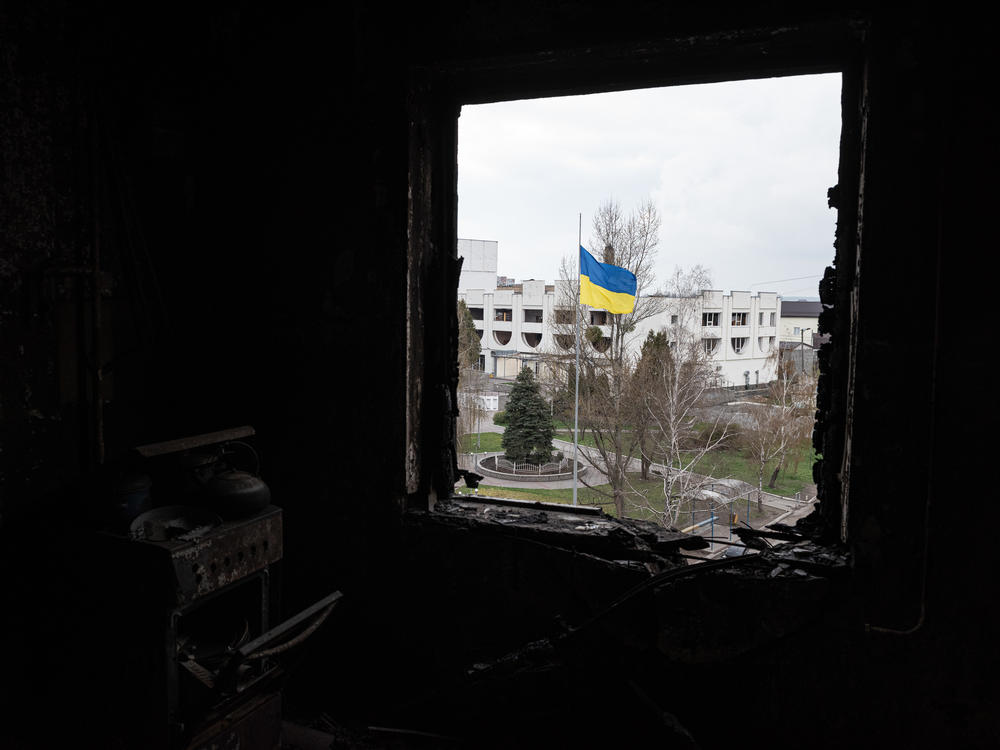Section Branding
Header Content
Opinion: The failed promise of 'never again'
Primary Content
What does the world's pledge to "Never Again" permit massacres or genocide mean?
The family of Vanda Semyonovna Obiedkova reported her death to the world this week. She was 91 years old, "a kind, joyous woman, a special person who will forever remain in our hearts," said her Rabbi, Mendel Cohen — the only rabbi in the city of Mariupol, which has been under relentless attack for weeks.
But both Vanda's early years and last days were marked by tragedy and savagery.
She was ten years old in 1941 when Nazi soldiers rolled into Mariupol and began rounding up the city's Jews. The SS took away her mother. Young Vanda hid in the basement.
"She couldn't scream; that's what saved her," Vanda's daughter, Larissa, who has just been safely evacuated from Ukraine, told the website for the Jewish organization Chabad.
German troops executed more than 9,000 Jewish people in shallow ditches outside Mariupol in October of 1941. Vanda's mother and her family were among those thousands.
Eventually, Vanda was detained. But her father, who was not Jewish, and family friends were able to convince the Nazis that the little girl was Greek. She spent two years hiding in a hospital, until the Soviet Red Army reached Mariupol in 1943.
Vanda Semyonovna Obiedkova was 91 years old when Vladimir Putin's Russian army began to shell the city. Decades after the Holocaust she survived, Vanda and her family had to take shelter in another basement.
"There was no water, no electricity, no heat," her daughter said. "There was nothing we could do for her. We were living like animals. ... Every time a bomb fell, the entire building shook."
Larissa and her family stayed at her mother's side. But she was cold, thirsty, hungry, fragile, and too weak to stand. Her daughter says she kept asking, "why is this happening?"
"Mama didn't deserve such a death," Larissa told Chabad. She says she and her husband buried Vanda in a public park, with help from neighbors. As Rabbi Mendel Cohen put it, "the whole Mariupol has turned into a cemetery."
At least one other Holocaust survivor was reportedly killed in the Russian invasion of Ukraine, a 96-year-old man who had survived four Nazi concentration camps, but died in Russian shelling of Kharkiv. This week, satellite images reported around the world revealed what seem to be mass graves near Mariupol, big enough to bury thousands of people.
Whether in Bosnia, Rwanda, Xinjiang, Bucha, Kharkiv or Mariupol, "Never Again" seems to happen again and again.
Copyright 2022 NPR. To see more, visit https://www.npr.org.

